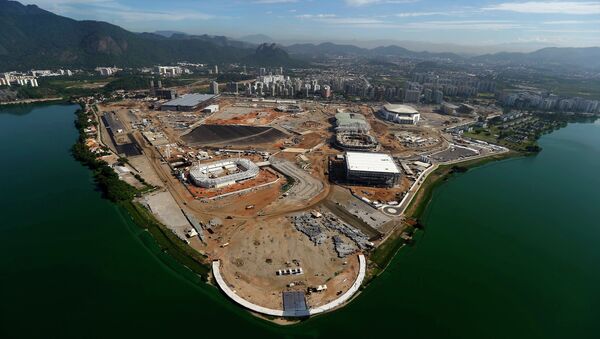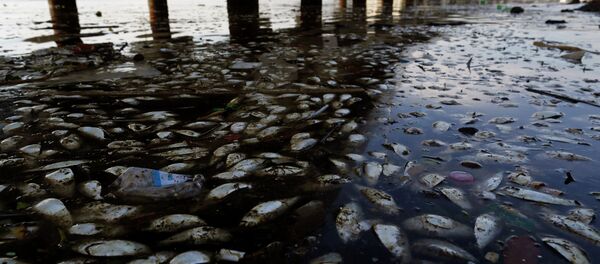"The Olympic Games will provide new, much-needed infrastructure for Rio. This includes a new metro line that will link the regions of Ipanema and Barra. The improved transport system will benefit at least one million people in Rio. Previously, only 16 per cent of the population had access to public transportation in Rio. After the Games, that number is expected to increase to 63 percent," the IOC said in its Saturday press release.
According to the statement, the Games will also benefit Rio's small businesses and volunteers, who will get a chance to improve their English language skills.
“Every reason to be confident and inspired by Rio 2016 – No reason to be complacent” – IOC President http://t.co/Na4K3VnfRW #olympics
— IOC MEDIA (@iocmedia) 1 Март 2015
"Hundreds of small businesses are being integrated into the Games and given access and assistance in the tender process for contracts worth more than BRL 3 billion. In addition, all of the 250,000 people who applied to be volunteers will receive English courses and training," the IOC said.
According to the committee, the Olympic Games Rio 2016 will be "the most inclusive Olympic Games ever" and will offer tickets as cheap as $15, with possibility of a further discount for students and the elderly.
The statement was issued after discussions between IOC President Thomas Bach and Brazilian President Dilma Rousseff wrapped up in Rio.
"There is really an impressive programme in place for engagement and legacies surrounding these Games," Bach said at the end of his week-long visit to Rio, as quoted by the IOC Saturday statement. He expressed confidence that the 2016 Rio Olympics will serve as a "catalyst" for social and economic development in the city and Brazil as a whole.
The 2016 Summer Olympic Games will open in Rio de Janeiro on August 5, 2016. The closing ceremony will be held on August 21. Rio won the bid to host the Games in October, 2009.
The construction of the golf course, an equestrian venue and the velodrome in Rio are still behind schedule and there are concerns over water pollution and street crime.
Several protests have been held by city residents, some of which claim that the Olympics are bringing environmental destruction to the city. Brazilians have also rallied against the country's authorities, claiming they are spending too much on the Games at the expense of housing, health and education and demanding that the government lower public transit fees.





